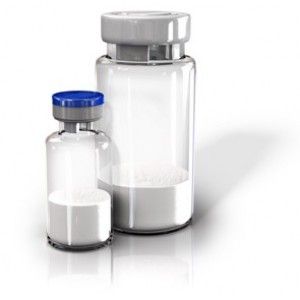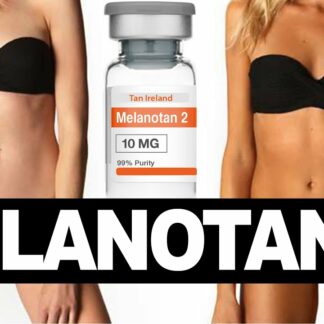Beschrijving
IGF-1 DES is a modified form of the natural hormone somatomedin. This insulin-like growth factor provides a powerful increase in muscle mass.
The IGF-1 DES peptide differs from conventional IGF-1 primarily by molecular modification, namely, truncation of three molecules from the IGF-1 chain. This truncated form is almost five times stronger than IGF-1 LR3 and ten times more effective than conventional insulin-like growth factor.
In addition, IGF-1 DES has a low affinity for proteins (1%). That is, it does not bind to proteins, maintaining its activity and availability for skeletal muscle.
After intense exercise, lactic acid accumulates in the muscles, which deforms cellular IGF-1 receptors. IGF-1 DES is able to bind to such receptors, providing active muscle recovery during training.
A feature of IGF-1 DES is a short half-life of only 20 minutes. In this it is inferior to the peptide IGF-1 LR3, which retains its activity throughout the day. These differences determine the different ways and purposes of using these tools. Sensitivity to DES develops more slowly than to IGF-1 LR3.
Thus, IGF-1 DES has a predominantly local effect. Therefore, it is used to affect a specific target muscle. The peptide stimulates hyperplasia of muscle fibers and increases anabolic activity. This allows athletes to achieve a significant change in the size and shape of the target muscle group.
Effects of IGF-1 DES
- increased muscle growth
- fat burning
- bone strengthening
- pumping during training
- muscle cell hyperplasia
- improved nerve tissue regeneration
Among the side effects of IGF-1 DES are hypoglycemia, which is possible by increasing the dose of the drug.
Bodybuilders and other power sports fans inject the peptide into the target muscles just before training. During the cycle, the athlete feels an increase in appetite, but the fat burns and dry muscle mass increases.



Beoordelingen
Er zijn nog geen beoordelingen.